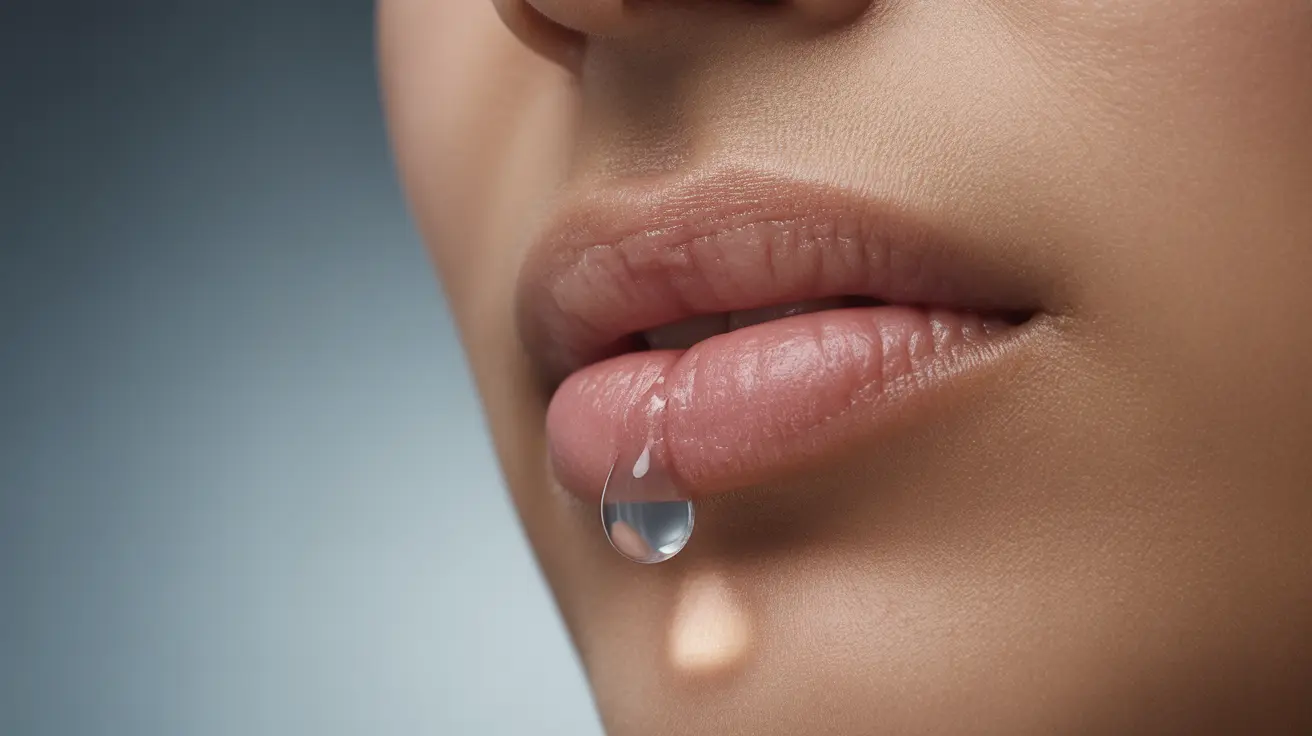If you've been experiencing persistently dry or chapped lips despite using lip balm and staying hydrated, vitamin deficiencies might be the underlying cause. Understanding the relationship between nutritional deficiencies and lip health can help you identify and address the root cause of your symptoms.
While environmental factors like weather and dehydration commonly cause dry lips, certain vitamin and mineral deficiencies can also significantly impact lip health. Let's explore these connections and discover how proper nutrition can help maintain healthy, moisturized lips.
Key Vitamin Deficiencies That Affect Lip Health
Several vitamin deficiencies can manifest through changes in lip health and appearance:
B-Complex Vitamins
B vitamins, particularly B2 (riboflavin), B3 (niacin), and B12 (cobalamin), play crucial roles in maintaining lip health. A deficiency in these vitamins can lead to cracking at the corners of the mouth, inflammation, and persistent dryness.
Iron and Zinc
These minerals are essential for maintaining healthy skin and mucous membranes, including the lips. Deficiency can result in pale, dry lips and increased susceptibility to cracking and irritation.
Vitamin A
This essential nutrient supports skin cell regeneration and helps maintain moisture levels in tissues, including the lips. Low vitamin A levels can lead to dry, scaly lips that are prone to cracking.
Identifying Nutritional Deficiencies Through Lip Symptoms
Different deficiencies often present with distinct symptoms:
- Angular cheilitis (cracks at mouth corners): Often indicates B vitamin deficiency
- Pale, thin lips: May suggest iron deficiency
- Persistent scaling and cracking: Could indicate vitamin A or zinc deficiency
- General dryness with other skin symptoms: May point to multiple nutritional gaps
Dietary Solutions for Healthy Lips
Incorporating nutrient-rich foods can help prevent and address deficiency-related lip problems:
- Leafy greens (for B vitamins and iron)
- Nuts and seeds (for zinc and B vitamins)
- Fish and eggs (for B12 and vitamin A)
- Sweet potatoes and carrots (for vitamin A)
- Whole grains (for B vitamins and minerals)
Special Considerations for Digestive Disorders
People with digestive conditions like celiac disease, Crohn's disease, or those following restricted diets may be more susceptible to vitamin deficiencies affecting lip health. These conditions can impair nutrient absorption, making supplementation sometimes necessary under medical supervision.
Frequently Asked Questions
- What vitamin and mineral deficiencies commonly cause dry or chapped lips?
The most common deficiencies causing dry lips include B-complex vitamins (especially B2, B3, and B12), iron, zinc, and vitamin A. These nutrients are essential for maintaining healthy skin and mucous membranes.
- How can I tell if my dry lips are due to a vitamin B deficiency or another health issue?
Vitamin B deficiency often presents with specific symptoms like cracks at the corners of the mouth (angular cheilitis), inflammation, and persistent dryness that doesn't improve with regular lip care. However, proper diagnosis requires medical evaluation.
- What foods should I eat to prevent dry lips caused by vitamin and mineral deficiencies?
Focus on consuming a balanced diet rich in B vitamins (whole grains, leafy greens), iron (lean meats, legumes), zinc (nuts, seeds), and vitamin A (orange vegetables, eggs). Include a variety of nutrient-dense foods to ensure adequate vitamin intake.
- Why do people with certain digestive disorders or restrictive diets often have dry, cracked lips?
Digestive disorders can impair nutrient absorption, while restrictive diets may limit intake of essential vitamins and minerals. Both situations can lead to nutritional deficiencies that affect lip health.
- When should I see a doctor about persistent dry lips that do not improve with regular lip care?
Consult a healthcare provider if dry lips persist despite proper hydration and lip care, especially if accompanied by other symptoms like fatigue, mouth sores, or changes in skin color. This could indicate an underlying nutritional deficiency or health condition requiring medical attention.




